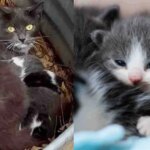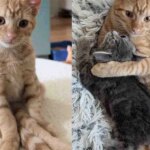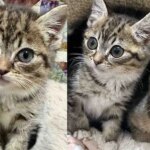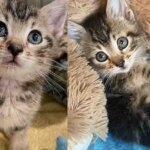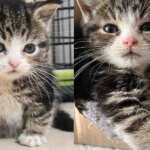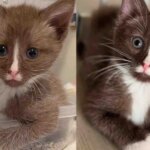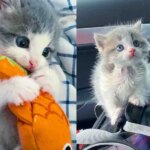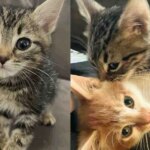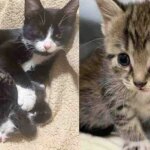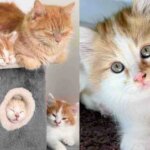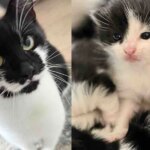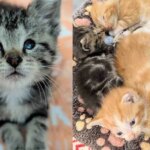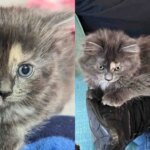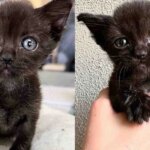Most people know their own blood type because it’s literally something that could save your life. So why is it you likely have never even thought about your cats blood type? Admittedly, I hadn’t. But when I began researching it, I realized just how important it truly is to have that information. Our felines are family and in an emergency, knowing that information could save their lives.
Photo: Cat Man Chris
Cat Blood Types
While humans have 4 blood types, cats only have 3; A, B and AB. There is no “O”, as this is only present in primates and humans. So while humans most common type is O+, for felines, the most common is A. There is no universal donor for cats either, sadly.
According to labgenvet.ca; “In the feline population, blood group A is found at the highest frequency (73 to 99.7%), blood group B is in second place (0.3 to 30%) and blood group AB has a fairly rare occurrence (0.2 to 20%). The prevalence of each group is highly dependent on cat breed and region. For example, breeds such as the Abyssinian, British Shorthair, Birman, Devon Rex, Himalayan, Persian, Scottish Fold and Somali have a higher frequency of blood group B than other breeds while Ragdoll cats have a higher frequency of blood group AB (18%) compared to other breeds.”
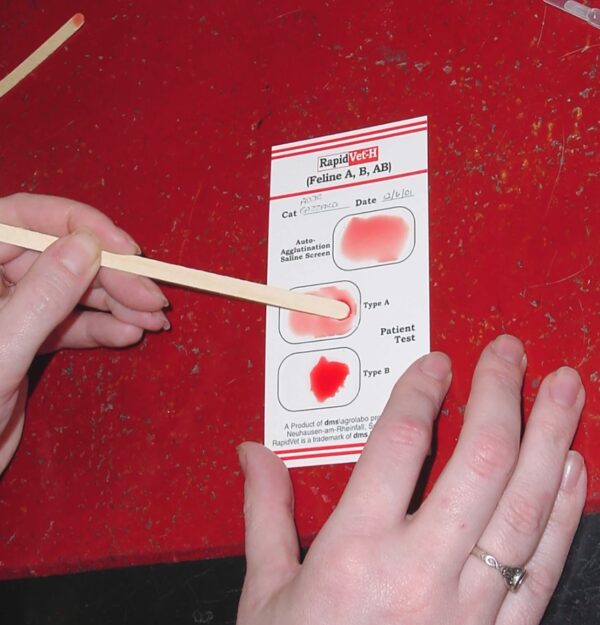
icatcare.org
Mama Cats Natural Protections
Your cats blood type is determined by genetics. And through the miracle of life, kittens receive antibodies from their mother like any other baby. Science has found that nature has set up its own method of protecting these young souls. So cool! If you really want to dive into the scientific details, you can find more info here.
The vast majority of cats have natural antibodies (alloantibodies) against the blood group that they do not have. In general, cats in blood group B have very strong antibodies against antigens for blood group A, while cats in blood group A have weak anti-B antibodies.

Photo: Cole and Marmalade/Cat Man Chris Foster Family May 2025
When they are first born, kittens, like humans, receive more than just nutrition from their mothers. However, there are also issues that may arise due to the differences in blood types of their cat parents.
Per ICatCare.org, “Any antibodies present in the blood of a queen (female cat) will also be passed into her milk and colostrum (the first milk produced) if they feed a litter of kittens. These antibodies will help protect the kitten against diseases in the early weeks of life. While this is highly beneficial for the kitten, it can sometimes cause problems with blood groups and blood incompatibilities.
If the queen is blood group B, she will have naturally occurring anti-A antibodies. If she mates with a type A tom cat, some of the kittens will be type A and when they feed on the queen’s milk in the first 24 hours of life, they’ll absorb the anti-A antibodies. The anti-A antibodies will then destroy the kitten’s red blood cells just as if there had been an incompatible blood transfusion. This is a condition known as neonatal isoerythrolysis and can be a significant cause of death in young kittens in certain breeds.
This disease doesn’t occur in type B kittens born to a type A queen, as type A cats have much lower levels of antibodies against the type B blood cells and often no antibodies at all.”
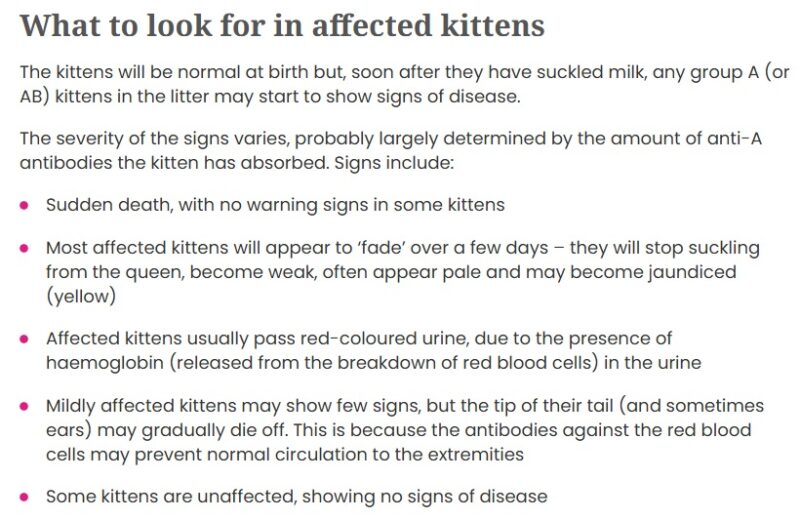
icatcare.org
Knowing Your Cats Blood Type Could Save Their Life
In an emergency, your cat may require a blood transfusion. Most often, anemic cats where blood oxygen levels are dangerously low, are given transfusions. But there are other instances where this may be an option, or necessity. Chronic kidney failure, cancer treatments or sudden blood loss from an injury may also require transfusions. And while there are quick tests that can be performed to determine the blood type, every second matters in life or death situations. Because if the ‘wrong’ blood is used, it could have the opposite effect of helping the patient.
Blood group B cats have high levels of anti-A antibodies in their blood. Antibodies are part of the immune system, and this means that if a type B cat received blood from a type A donor, this could cause a severe (and even fatal) reaction because the immune system would recognise the type A blood as ‘foreign’ and attack it. Some group A cats also have anti-B antibodies, so they may also develop severe reactions if given incompatible blood.

www.petbloodbankuk.org
If no match can be determined, there is one rare option that may be available; canine/dog blood. This is called Xenotransfusion. NO, human blood cannot be used.
If feline type-compatible blood is not available and the patient has severe life-threatening anemia or is actively bleeding, canine blood can be used for transfusion. However, delayed reactions were reported in recent studies as early as four days after xenotransfusion (Le Gal et al., 2019). Moreover, strong antibodies are synthesised, and the transfused cat will be at high risk of acute hemolysis for future xenotransfusions with canine blood. Due to these risks, xenotransfusion should only be performed in severe emergency conditions, only once, with owner consent.
Donating Blood
And just like humans, cats (and dogs) can be blood donors. Don’t forget about that important fact next time there may be a natural disaster near you! But there are important factors to consider if you would like to have your 4-legged companions become donors. Here are the current requirements per the University of Minnesota’s Veterinarian Medical Center blood donor program.
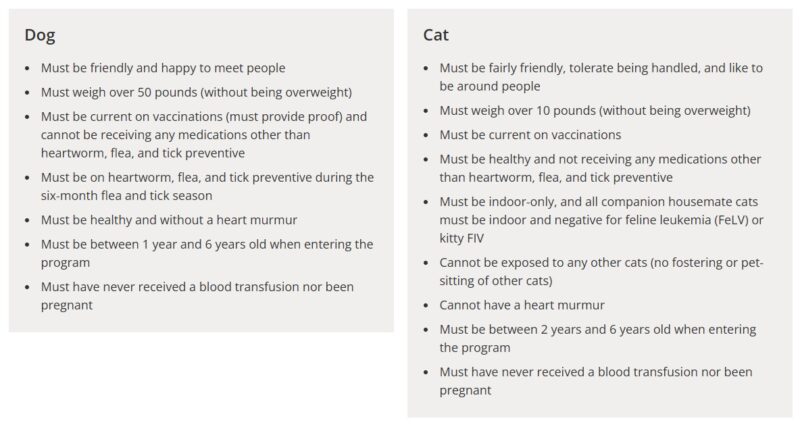
vmc.umn.edu-support-vmc-blood-donor-program
There ARE risks to being an animal blood donor however, that owners must be aware of and consider carefully. Please ask your veterinarian office and/or research in your area to find a blood donor location and thank you!
Even when all these criteria are met, donating blood is not without risks – donor cats can develop low blood pressure, and occasionally, previously undetected heart disease may become apparent after a cat donates blood, which can cause significant issues. Thankfully, the vast majority of donations are performed without complication, provided the donor is selected carefully.
REMEMBER: SAFETY FIRST BECAUSE CATS ARE FAMILY TOO! KNOWLEDGE IS PURRWER!




